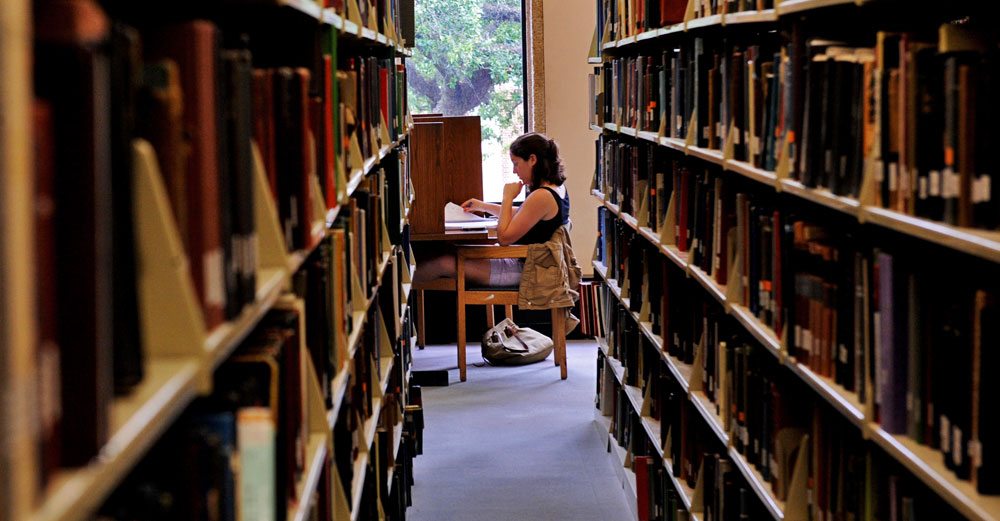
With the semester in full swing, homework piling up, and test deadlines nearing closer, it’s perfectly normal for students to feel stressed out. Sometimes, the stress starts to become overwhelming and can manifest into feelings of anxiety. College life can be hard, and school is only just a part of it. Layered on top might be worries about a part-time job or internship, relationship or friendship troubles, homesickness, family problems, roommate issues… the list goes on and on. Our mental health is one of the most important things that we college students need to be mindful of. However, many students tend to write off their stress, anxieties, and other feelings as a second priority.
The New York Times Wellness blog states, “students who suffer from this acute manifestation can feel their very real struggles are shrugged off, because anxiety has become so ubiquitous, almost a cliché, on campus.” A study conducted by the Associated Press and mtvU found that 80 percent of college students said they experience daily stress, 34 percent have felt depressed within the last 90 days, and 13 percent have been diagnosed with anxiety disorder or depression. These feelings of acute stress can result in several physical, emotional, cognitive, and behavioral symptoms that may affect daily activities.
The first thing that students need to realize is that, if you are feeling overwhelmed, you are not alone and it is perfectly alright to ask for help. If you find yourself becoming overly stressed by schoolwork, or just life in general, there are numerous ways to help alleviate the way you’re feeling, some of which are detailed below.
1. Talk to Someone
Whether it be a friend or family member, let them know how you’re feeling. Just having someone listen to you can drastically reduce stress. Additionally, don’t hesitate to make use of your college’s student health center. Most schools offer free counseling for students, whether through individual or group therapy. “More students are seeking help partly because the stigma around mental health issues is lessening,” noted Stephanie Preston, a counselor at the University of Central Florida. Preston mentions that over 80 percent of the students their counseling center meets with are only in need of limited therapy sessions. “Students are busting their butts academically, they’re financially strapped, working three jobs,” she said. “There’s nothing diagnosable, but sometimes they just need a place to express their distress.”
The counseling center at Binghamton University offers a list of helpful tips for tackling academics and other problems ailing students. They also provide links for downloadable stress reliving apps including helpful tools like music therapy, a workout planner, and monitoring sleeping habits.
2. Get Sleep and Eat Regularly
It’s easy to get so caught up in work that we forget to get a proper amount of sleep, or even skip meals. Learn Psychology suggests that not getting enough sleep impairs academic performance and makes it harder to get through the day. To get a better night of sleep, try to maintain a routine schedule of going to bed and waking up at the same time every day to help set your body’s internal clock. Regular exercise has also been shown to help relieve symptoms of insomnia and increases the amount of time you spend in the deep, restorative stages of sleep. Also, don’t forget to eat! Even breakfast, which yes, even I admit to skipping sometimes. Eating proper meals during the day, and even a quick snack, can help boost your energy and make you feel better.
3. Take a Break
“So my projects due tomorrow, and I have that test Tuesday, and I need to write that article, and-” stop yourself right there. Take a deep breath, and take a break! All the things you need to get done will get done, and sometimes the best way to get them done is by giving yourself time to relax. A study at the University of Illinois determined that productivity progressively declines after 50 minutes of non-stop work. A car eventually runs out of gas, right? Well, the same can be said for your brain. Sometimes, you just need to refuel. The best way to do that is by doing something you love. Whether it be reading, exercising, or watching your favorite television show, giving yourself that time is crucial to relieving stress. My personal remedy (and I’m sure, many of yours too): Netflix!
4. Do Your Best
No one is perfect, and there will be times when we fail and when we succeed. The Anxiety and Depression Association of America suggests that instead of aiming for perfection, which isn’t possible, be proud of how close you get. Try to put things in perspective, and don’t sweat the small stuff. If we step back and take a look at the big picture, we might see a different kind of priority come up. Try your best, that’s all anyone can ask for. Those incremental improvements, if put into perspective, can do great things for confidence and self-esteem.
5. Laugh
Sometimes the best remedy for anxiety and stress is a good, hearty laugh. According to Help Guide, humor lightens your burdens, inspires hopes, connects you to others, and keeps you grounded, focused, and alert. Laughing relaxes your muscles, boosts your immune system, dissolves distressing emotions, and most importantly helps shift perspective. Learning to laugh at a difficult situation or laugh at yourself helps put things in a less threatening light. Smile, and appreciate the good stuff.




These tips are fantastic! I especially agree with # 2 about regular sleep and meals. When I teach my students, my first suggestion has always been to sleep at least eight hours a day and eat/drink regular meals throughout the day. Sometimes they shrug it off and decide take it very lightly, but any student with the desire to learn needs to embrace the importance of taking care of the human body. Without sleep and then nourishment, your body will not make it to class as balanced and energized as it should be to reduce incoming stress! Thank you for this well-written post Julia!
Those tips sound really easy to execute but sometimes they are hard to follow. I use one technique when I want to combine studying and relaxing. It’s a well-known fact that cleaning can help you reduce stress and keep you in a good mental health. I usually read my lectures and after that, I start cleaning around the house while talking to myself. It may sound little crazy but it really helps. Try asking yourself different questions and answering them while cleaning.